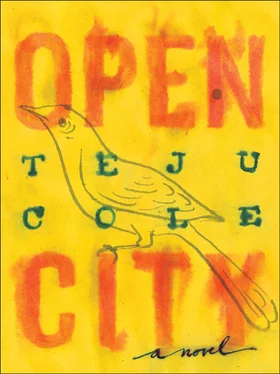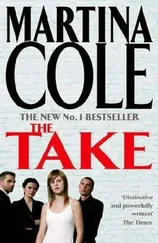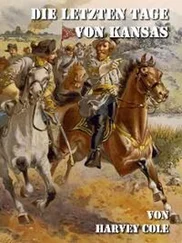Sensing my interest, the man spoke on, and our eyes moved over the surfaces of Munkácsi’s photographs as he talked. There was one that showed a field of young Germans lying in the sun, which must have been taken from a zeppelin. The bodies, filling every available space, made a flat, abstract pattern against the field. The man spoke with the slowness of someone who was entering a memory, but it was not a foggy memory, and he spoke about it clearly, as though it had only just happened. I was thirteen when we left Berlin in 1937, he said, and New York has been my home ever since.
My guess of his age had been far off, and yet he looked nothing like an eighty-four-year-old. He was fit, and the way he moved his body was unimpeded by age. There was a lightness, too, in the way he spoke about his boyhood, almost as if he were talking about something else, something less frightening, something less littered with disaster. It wasn’t until much later, he said, that they finally adopted illustrierte with the extra e . But this spelling, this is the one I knew in those days. Have you been to Berlin? I told him I had, and that I had enjoyed the city very much. I’ve never been back, he said, but I liked it a lot when I was there. It must have been an unimaginably different place back then, I said. I did not tell him that my mother and my oma had been there, too, as refugees near the end of the war and afterward, and that I was myself, in this distant sense, also a Berliner. If we had talked more, I would have told him only that I was from Nigeria, from Lagos. As it turned out, just then, his wife, or an old lady whom I presumed was his wife, came to join him. She looked much older than he did, and used a walker. With a smile and nod to me, he moved on with her to another part of the exhibition.
The mood of Munkácsi’s photographs darkened as the 1920s became the 1930s, and the soccer players and fashion models gave way to the cool tensions of a military state. This story, told countless times, retains its power to quicken the heart; always, one holds out the secret hope that things will turn out differently, and that the record of those years will show wrongs on a scale closer to the rest of human history. The enormity of what actually happened, no matter how familiar it is, no matter how often it is reiterated, always comes as a shock. And that was what happened when, among the photographs of troops and parades at the opening of the Reichstag in 1933, there was the image, at once expected and unexpected, in the middle ground of a row of soldiers, of the new German chancellor. Walking close behind him, with his contorted nightmare of a face, was Goebbels. I happened to be looking at this picture at the same time a young couple was. I stood to the left of it, and they to the right. They were Hasidic Jews. I had no reasonable access to what being there, in that gallery, might mean for them; the undiluted hatred I felt for the subjects of the photo was, in the couple, transmuted into what? What was stronger than hate? I did not know, and could not ask. I needed to move away, immediately, needed to rest my eye elsewhere and be absent from this silent encounter into which I had inadvertently barged. The young couple stood close to each other, not speaking. I couldn’t bear to look at them, or at what they were looking at, any longer.
The show turned on that axis. It became about something else, and couldn’t be saved. There were other photographs, images from Munkácsi’s successful career in the 1940s in Hollywood, stylish pictures of socialites and actors: Joan Crawford, Fred Astaire. But the afternoon was poisoned, and I wanted only to get home and sleep, and begin my year of work. I moved through the crowd toward the exit, and caught a last glimpse, as I passed the museum shop, of the old Berliner and his wife. His long-saved story of illustrirte had found the time and place for its airing; unimaginable how many small stories people all over this city carried around with them. It was only then that I noted that Munkácsi, the photographer of the so-called Day of Potsdam , into whose camera one seemingly ordinary moment in Berlin in 1933 was secreted away for future viewers, was himself Jewish.
I walked north on Sixth Avenue as far as Fifty-ninth Street. Then I took a turn, and walked on Broadway in the direction of Times Square, and passed the Iridium Jazz Club. No longer wanting to go to bed, trying to fend off jet lag, I called my friend to ask if he would come see the guitarist playing there that night. He expressed sarcastic shock that I would willingly pay for jazz but said he was already booked for the evening. And so I headed home, with the thought I would call Nadège: it would be around four in the afternoon in California, and she would be back from mass. But it wasn’t time yet to open up the lines of communication. Months had passed, but it wasn’t yet time. How strange the effect of those few months with her had been on me. Her card meant, perhaps, that things were thawing from her point of view, but I, for my part, remained unready. Nor was I prepared, now that I think of it, to admit to myself that I had made too much of our brief relationship. When I got home, I took a shower, drowsing under the warm water, and I got into bed; but right away got out again and called her, after all.
WE EXPERIENCE LIFE AS A CONTINUITY, AND ONLY AFTER IT FALLS away, after it becomes the past, do we see its discontinuities. The past, if there is such a thing, is mostly empty space, great expanses of nothing, in which significant persons and events float. Nigeria was like that for me: mostly forgotten, except for those few things that I remembered with an outsize intensity. These were the things that had been solidified in my mind by reiteration, that recurred in dreams and daily thoughts: certain faces, certain conversations, which, taken as a group, represented a secure version of the past that I had been constructing since 1992. But there was another, irruptive, sense of things past. The sudden reencounter, in the present, of something or someone long forgotten, some part of myself I had relegated to childhood and to Africa. An old friend came to me out of this latter past, a friend, or rather an acquaintance whom memory now made convenient to think of as a friend, so that what seemed to have vanished entirely existed once again. She appeared (apparition was precisely what came to mind) to me in a grocery store in Union Square late in January. I didn’t recognize her, and she followed me for a while, tracing my steps around the aisles, to give me an opportunity to make the first move. It was only when I noticed that I was being shadowed, and was beginning to adjust my body into that skeptical awareness, that she came right up to where I was standing, in front of a display of carrots and radishes. She said a bright hello, waved, and addressed me by my full name, smiling. It was clear she expected me to remember her. I didn’t.
She looked Yoruba, with a slight slant to her eyes and an elegant swoop to the jaw, and it was clear from the accent that that was where I should look for the connection between us. But I failed to find it. At the same moment that I confessed to having blanked out on who she was, she accused me of just that, a serious accusation, but jocularly expressed. She couldn’t believe I had forgotten her, and she said my name several times in quick succession, as if to chide me. My lighthearted apology masked the irritation I suddenly felt. I feared for a moment that she would overextend the charade, and make me cajole her into saying who she was, but she introduced herself, and the memory was restored: Moji Kasali. She was the older sister (by one year) of a school friend, Dayo. I had met her two or three times in Lagos, when on school breaks I would visit Dayo at home. Dayo and I were rather close friends during the junior secondary years, but he hadn’t stayed at NMS long, leaving at the beginning of the first senior secondary year, and transferring to a private school in Lagos. We made an effort to communicate with each other the following Christmas break, but when I visited him at home, the gateman turned me away, and when he returned my visit a week later, I wasn’t home. We no longer had the NMS connection, and I was sure he’d made new friends. Our friendship faded. About a year later, I’d met him at some tennis courts in Apapa. He was with a girl, playing the man-about-town, and our conversation was stilted.
Читать дальше












